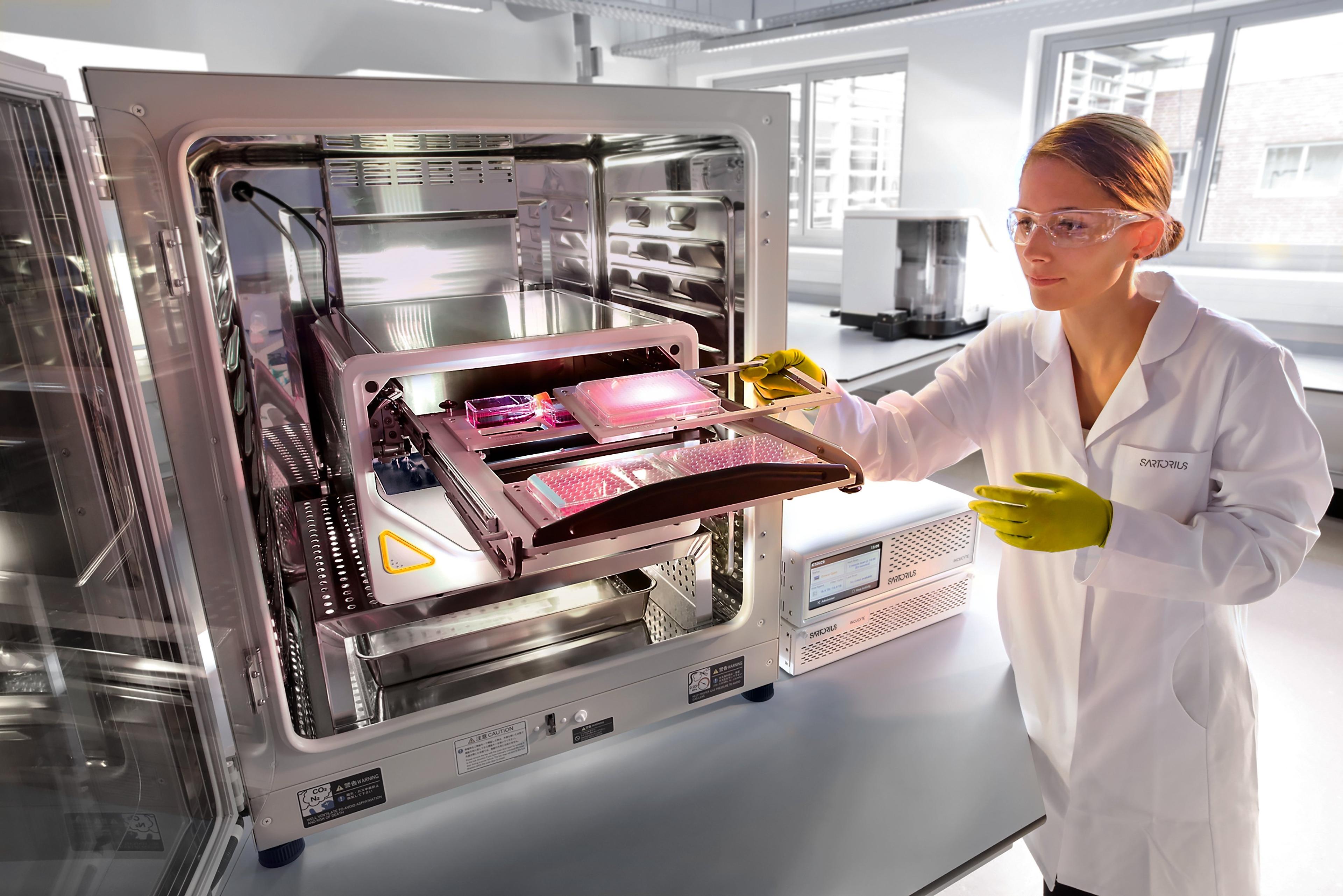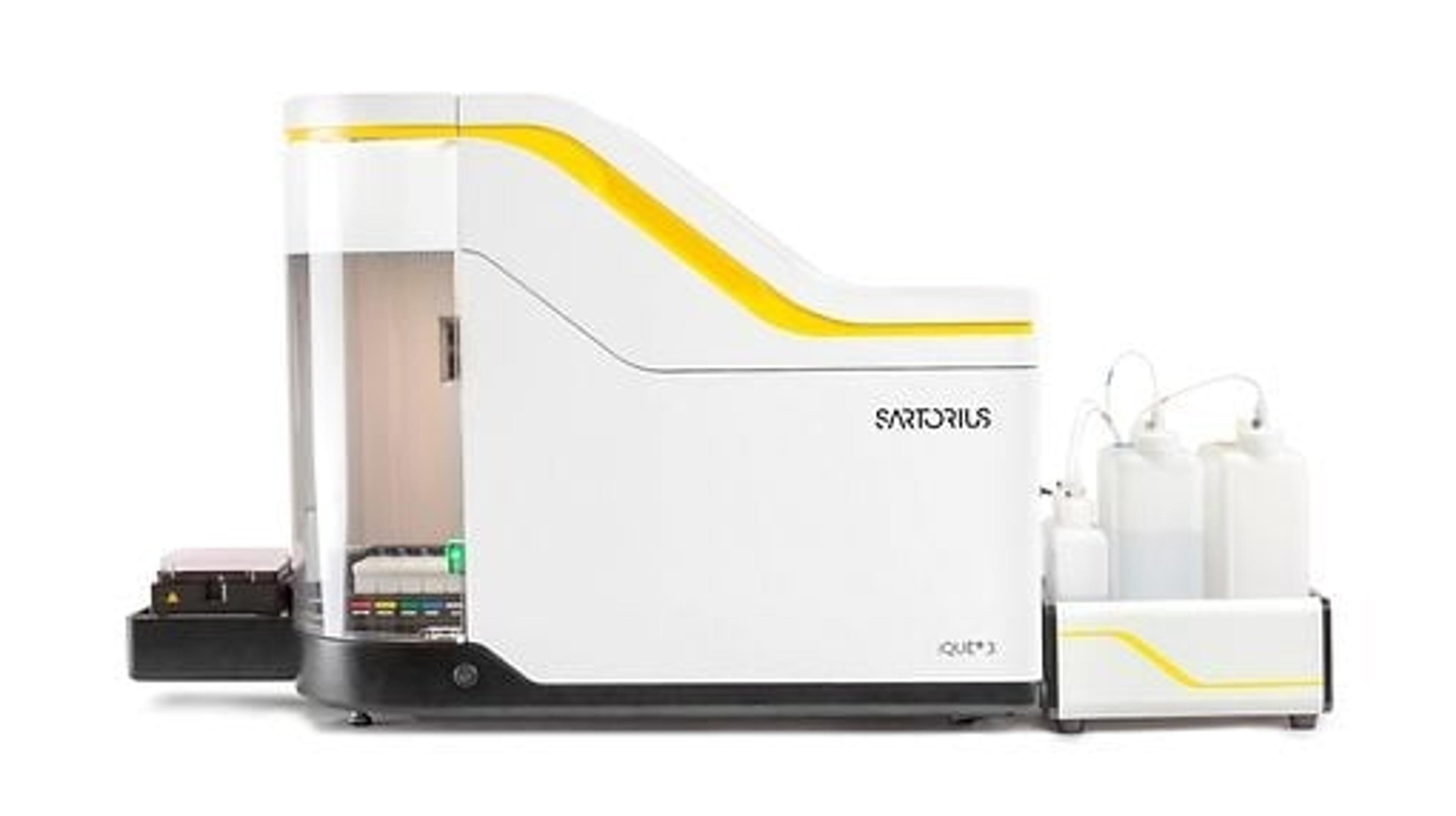Antibody-drug conjugates for anti-cancer therapy – your questions answered
Catch up on this on-demand webinar to learn how researchers at LifeArc are investigating a novel approach to targeting ALK-expressing neuroblastoma cells
21 Apr 2020

Oncogenic mutations of anaplastic lymphoma kinase (ALK), a receptor tyrosine kinase, have been identified in a number of carcinomas. More recently, overexpression of mutated ALK has been linked to neuroblastoma cancer cells and is associated with poor prognosis in young patients. While current therapies target intracellular signaling cascades, ALK mutant variants demonstrate kinase inhibitor resistance, and therefore new mechanisms to target these cancer cells are crucial for better treatment.
Catch up on this on-demand SelectScience® webinar to discover how researchers at LifeArc are investigating a novel approach whereby cytotoxic agents are conjugated to ALK-specific antibodies as a mechanism of directly targeting ALK-expressing neuroblastoma cells.
Watch on DemandThink you could benefit from this webinar, but missed it? You can now watch it on demand at a time that suits you and find highlights from the live Q&A session below>>
Q: How are antibody-drug conjugates (ADCs) progressing in the oncology field?
RF: There has been good progress over the past few years. We've got seven that are now approved ADCs within the clinic. This a lot further on than we were, as the first ADC to get approved was removed from the market due to safety reasons. But we're now onto third-generation ADCs, meaning they've got better linkers and less toxicity from unwanted small-molecule release which is really good progress. As well as this, we've got new payloads being investigated. These don't rely on cell cycle, the cells dividing, and the way the payloads are conjugated. So, before, we used to have homogenous ADCs where the lysine or cysteine conjugated. But now a lot more people are investigating site-specific conjugations so that we can control where these conjugations are and how many payloads are on the ADC so you get a homogenous ADC batch.
Q: Can ADCs be screened on either the IncuCyte or the Intellicyt?
RF: Yes, as I showed in the slides you could use either, but the best progress and process would be to use both in combination, just like I've highlighted in the slides. This is because one way the IncuCyte works is to measure the kinetic readout of the ADC, you can then use the Intellicyt iQue advanced flow cytometry to hone in on the right time points and investigate further.
Q: Would the other assays you described be needed to screen ADCs?
RF: Not necessarily. I've shown you the whole process, including trying to optimize the different stages of ADC screening and development. First of all, you definitely need to confirm that your antibody binds to your targets specifically and then pick a suitable assay for determining internalization and cell killing. So, if you're screening the secondary antibody, FAB reagents are best suited. Once you have a candidate antibody, you can directly conjugate this to make sure there are no problems with the secondary antibody when internalizing it with the primary.
Q: How would you introduce ALK-ADC into the human body, since targeting different types of cells result in different outcomes? (Will it be injected, oral ingestion, etc.? Should the target cells be specific? And will it be different in stages if the dose is excessive?)
RF: This all needs to be worked out, but it will be administered via injection route, most ADCs are. It would target all tissues that express ALK that are peripheral. Obviously, it won't get into the brain, but this is a good thing. Most of the overexpression of ALK is from the cancer cells, so you'd be specifically targeting these. It should only internalize on those cells and release the cytotoxic payload. This means there shouldn't be any problems with off-target specificity or on-target but off-tissue specificity as well.
Q: Are LifeArc working on any other ADC projects at the moment?
RF: Yes, we've started looking at some of these cancer ADC therapy projects. Right now, we've got a lot more expertise in the screening and the development pipeline of this, as well as the target validation. This is very important because you've got the capabilities of antibody experts, the small-molecule chemists and the biologists. We work well together to work out all these problems. But more recently we've been looking at non-internalizing formats as well, trying to find a new niche for these ADC therapies. There are other companies that are expanding the use of ADCs as well, so they're not just for the typical antibody targets now.
Q: How has ALK-ADC progressed?
RF: We started looking at in vivo models and setting those up to then test our KDC in those xenograft models with their neuroblastoma cell lines. But, unfortunately, since we've been looking into this, another group also thought that an ADC graft model was a really good idea and they beat us to publishing. But we've been in talks to collaborate with them and try to progress our KDCs as best we can together and see which one would work best.
SelectScience runs 3-4 webinars a month across various scientific topics, discover more of our upcoming webinars>>


